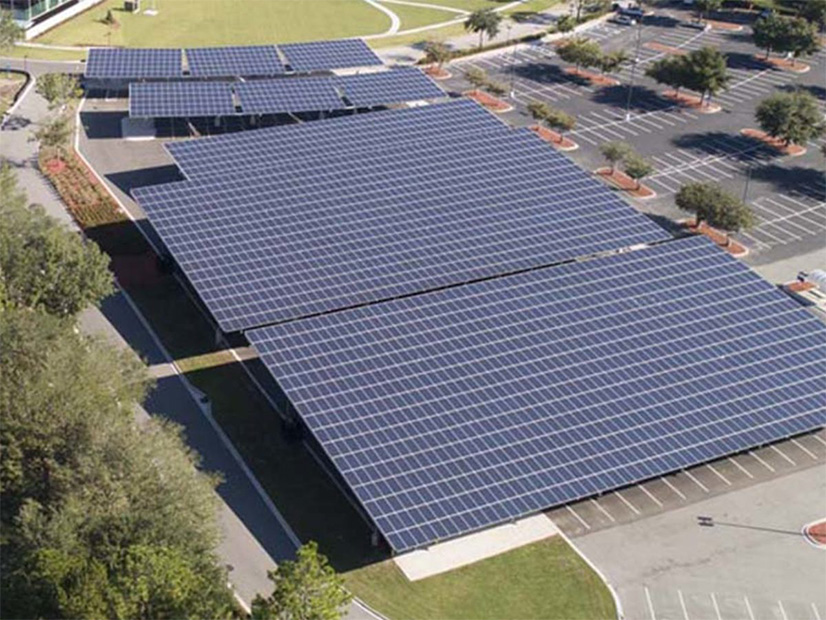
The labor practices component of a Washington solar power bill has drawn opposition from construction interests in the state.
On Thursday, the Washington Senate’s Ways and Means committee heard testimony on a bill to grant tax breaks to solar canopies built over large parking lots in urban areas. Senate Bill 5714 was introduced by Sen. Reuven Carlyle, (D), chairman of the Environment, Energy and Technology Committee, who got the idea for the legislation from the global climate summit held in Glasgow, Scotland last fall.
Carlyle described a scenario in which a typical Walmart parking lot covers five acres and a canopy of solar panels could be built over one acre of it, locating solar farms within towns and cities.
His bill would provide tax breaks to those efforts if the builder approaches the Washington Department of Revenue in advance and meets certain criteria. The breaks would consist of repayments of sales and use taxes accumulated during construction. Construction would have to be completed in two years to receive all requested tax breaks.
Under the bill, a qualifying project must be at least 50,000 square feet and have a nameplate capacity of 1 MW. The solar canopy installer would receive a 50% refund or deferral of its taxes if it is an organization owned by women, minorities, or veterans, or an entity with a history of complying with federal and state wage and hour laws, apprenticeship utilization and using preferred entry workers living in the project construction area.
Refunds or deferrals of 75% would go to one of those organizations if workers on a project were compensated at prevailing wages determined by collective bargaining agreements.
A 100% refund would go to a contractor operating under a community workforce agreement or a project labor agreement (PLA), which is a special collective bargaining agreement tailored to a specific project that supersedes existing bargaining agreements. A typical PLA requires that workers are hired through union halls, and that nonunion workers are paid union wages for the length of the project. Also, the contractor must follow union rules on work conditions, pensions and disputes.
The PLA requirement for a 100% tax exemption prompted opposition from two contractor organizations — Associated Builders and Contractors of Washington and Associated General Contractors of Washington, who asked that the provision be removed from the legislation.
“The PLA language is totally unnecessary,” said Jerry VanderWood, chief lobbyist for the Associated General Contractors.
The two contractor associations were the only ones that testified about the bill Thursday.
At a Jan. 13 hearing before the Senate energy committee, several groups supported the use of parking lots as solar canopy sites at locations in or next to cities, saying the structures would help protect habitat and green spaces that would normally host solar farms. The canopies would also prove shade in the summer and shelter in the winter, according to testimony.
At the same hearing, Todd Myers, director of the conservative Washington Policy Center, testified that solar power is not cost-efficient, and that rainy and heavily urban Western Washington would be a poor location for solar resources.


